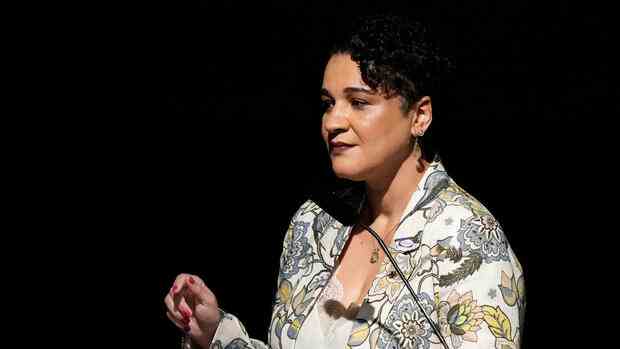Medeiros, it marks a cultural change in the bank in relation to politics.
(Photo: dpa)
Salvador Tarciana Medeiros started her career as a seller at the weekly market in her hometown of Campina Grande. It is located in the barren interior of the Brazilian northeast of Brazil. People have been fleeing from there because of poverty and drought for centuries – just as Brazilian President Luíz Inácio Lula da Silva experienced as a child.
Now he has made 44-year-old Medeiros president of Banco do Brasil, by far the largest state bank in Latin America. Lula explained at Medeiro’s appointment that the bank is more than 200 years old – and there was never even “a remote thought” to make a woman president. “And we will prove that one woman can be better than many men who have run the bank.”
Again and again, key positions at Banco do Brasil were filled by men who ended up in politics there because of their good connections – but didn’t necessarily understand much of the day-to-day business of a large bank. Ever since it was founded, the bank has been caught up in corruption scandals in the Brazilian colony.
At Medeiros, despite her political appointment, the chances are good that she will be able to fill the position competently: After all, she worked her way up from a provincial branch to the top at Banco do Brasil in 22 years.
Top jobs of the day
Find the best jobs now and
be notified by email.
She knows the credit and customer business from the bottom up. Most recently, she was in a managerial position in the insurance sector, where she was able to significantly increase sales. The former teacher studied business administration parallel to her work in the bank and did postgraduate studies in marketing, leadership and management.
Cultural change in the bank in relation to politics
She now owes something to the 85,000 colleagues at the bank for the warm welcome. “I am committed to shareholders to continue delivering relevant results and contributing to the country’s development,” she said. “This transformation of Brazil will lead to less inequality and more opportunities for all.”
Lula has been criticized for weeks on social networks for the low proportion of women in the cabinet.
(Photo: dpa)
As well as being from the Northeast, Medeiros is also Afro-Brazilian and supports LGBT causes, openly campaigning for equal rights for gay, lesbian, bisexual and trans people.
In doing so, she marks a cultural change in the bank in relation to politics: Jair Bolsonaro, the right-wing authoritarian president and Lula predecessor, stopped another commercial for the state bank and fired the director responsible. The bank had published an advertisement aimed at a diverse audience.
Lula tries to keep campaign promises
Lula has appointed another woman, Rita Serrano, as President of the Federal Savings Bank (Caixa Economica Federal, CEF), which is also state-owned. Serrano has arrived at the top after a 33-year career in the CEF. The bank is important for the payments of social assistance and for the financing of social housing construction.
>> Read here: Entrepreneurs withdraw confidence from Bolsonaro
With the appointments, Lula just managed to avoid further disappointment from his female voters: During the election campaign he repeatedly said that he wanted to fill his cabinet with as many women as possible.
Lula has made 44-year-old Medeiros president of Banco do Brasil, by far the largest state bank in Latin America.
(Photo: dpa)
But then he chose only eleven female ministers from among the 37 ministers. These include, for example, the rainforest conservationist Marina Silva in the Ministry for the Environment, the conservative presidential candidate Simone Tebet in the Planning Department and the indigenous politician Sônia Guajajara in the Ministry for Indigenous Peoples.
But Lula has been criticized for weeks on social networks for the low proportion of women in the cabinet. With the appointment of Medeiros and Serrano to head the key banks, Lula has now made amends. These are among the most sought-after posts that can be awarded in coalition talks, given the usual haggling in Brazil.
>> Read here: What the chaos in Brazil means for the country’s economy
Nevertheless, Lula is faced with further demands for more gender parity. Earlier this week, women diplomats in Brasília set up their own interest group.
With Maria Laura da Rocha, Lula has appointed a general secretary for the ministry for the first time. But that’s not enough for the diplomats, who have been protesting for more equality for many years.
They now want a law for a quota in six months at the latest. The diplomat and association chairwoman Irene Vida Gala says: “We want to have at least as many management positions that correspond to the proportion of women in the ministry – preferably more.”
More: Which widens the pay gap between women and men
